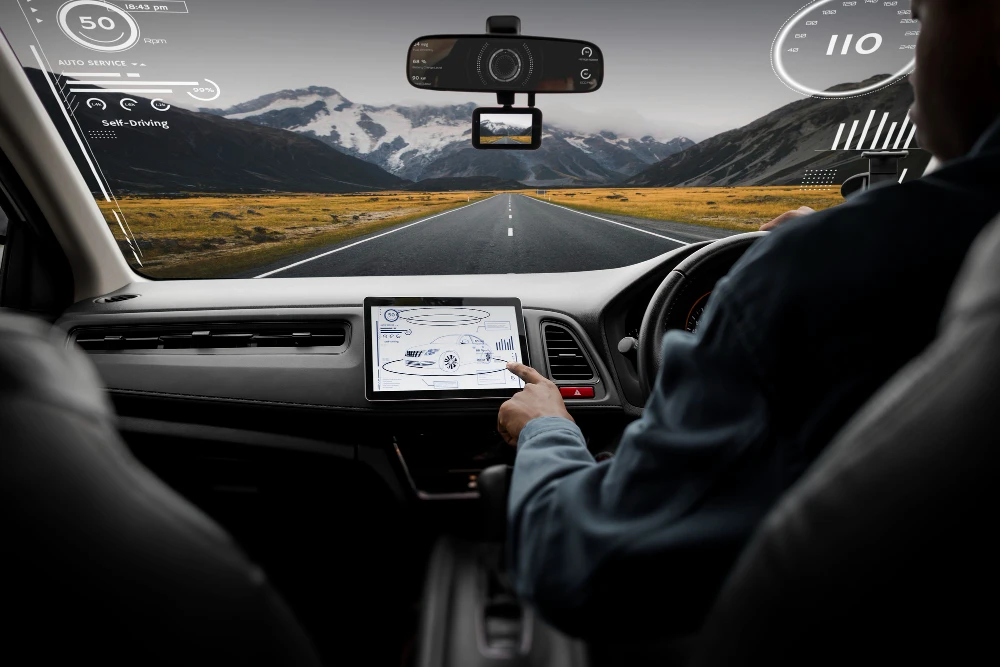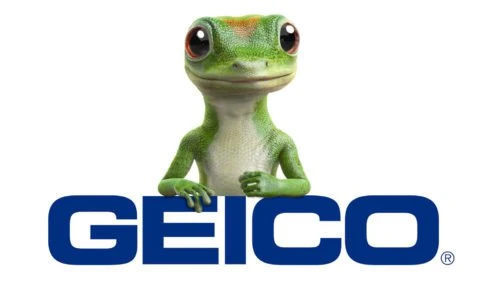The Evolving Coverage Of Auto Insurance In Recent Years
Introduction to Auto Insurance Changes:
Over the years, auto insurance has experienced significant changes to better meet the needs of drivers and keep pace with advancing technology. These changes reflect the industry's commitment to providing personalized and efficient coverage options.
The traditional approach to auto insurance, which relied on factors such as age, location, and vehicle type, has evolved to incorporate technological advancements and individual driving behavior. This modern approach allows insurance companies to tailor coverage based on data specific to each driver, creating a more accurate representation of risk and enabling fairer pricing.
These changes have given drivers more control over their insurance policies, allowing them to choose coverage options that align with their driving patterns and preferences. This shift towards personalization recognizes that not all drivers have the same needs and provides flexibility to accommodate various lifestyles and budgets.
Technological Advances and Coverage Evolution:
Technological advancements have had a profound impact on the evolution of auto insurance coverage, revolutionizing how insurers assess risk and provide protection to their policyholders. One notable advancement is the integration of telematics devices and data analytics into the insurance landscape.
Telematics devices, such as plug-in devices or smartphone apps, collect and transmit data on various aspects of driving behavior, including speed, distance traveled, and braking patterns. This data allows insurers to gain insights into individual driving habits, enabling them to offer more personalized coverage based on the actual risk posed by the driver. Policyholders who exhibit safe driving behavior can now be rewarded with lower premiums and additional benefits, creating a win-win situation for both insurers and customers.
Additionally, data analytics has become a powerful tool in assessing and pricing auto insurance coverage. Insurance companies can now analyze massive amounts of data to identify correlations, trends, and risk factors, enabling them to make more accurate predictions about potential claims and adjust premiums accordingly. This helps insurers to minimize risk and offer policies that are better suited to individual drivers, resulting in fairer pricing and a more personalized coverage experience.
Personalized Options in Auto Insurance:
The world of auto insurance has embraced the concept of personalization, offering a wide range of options to cater to the unique needs and preferences of drivers. This shift towards personalized insurance plans acknowledges that one size does not fit all and allows policyholders to have greater control over their coverage.
One of the key advancements in personalized auto insurance options is the introduction of pay-as-you-drive plans. These plans take into account the actual usage of the vehicle, allowing drivers to pay premiums based on the distance they drive or the time they spend on the road. This provides a more accurate reflection of their risk and ensures that policyholders are not overpaying for coverage they do not fully utilize.
Additionally, specialized coverage options are now available to cater to specific lifestyles and driving habits. For example, insurers may offer discounted rates for drivers who primarily use ridesharing services or opt for usage-based insurance policies that track driving behaviors. This allows drivers to align their coverage with their individual needs and potentially lower their premiums.
Furthermore, personalization extends to additional coverage options that go beyond the basics of liability and collision. Drivers can now choose from a variety of add-on coverages, such as roadside assistance, rental reimbursement, or comprehensive coverage for specific items in their vehicle. These options provide a more comprehensive and tailored level of protection that resonates with the driver's specific requirements.

Usage-Based Insurance on the Rise:
Usage-based insurance (UBI) has been gaining significant popularity in recent years, as more drivers seek personalized and cost-effective coverage options. UBI, also known as telematics insurance, utilizes technology to track driving behavior and customize insurance premiums based on actual data.
One of the key reasons for the rise of UBI is the potential for cost savings. By monitoring driving habits such as speed, acceleration, braking, and mileage, insurers can create a more accurate representation of risk and calculate premiums accordingly. Safe drivers who exhibit responsible behaviors are often rewarded with lower premiums, incentivizing and promoting safer practices on the roads.
Moreover, UBI promotes transparency and fairness in insurance pricing. Unlike traditional insurance models that rely on general demographic factors, UBI takes into account individual driving patterns. This approach ensures that each policyholder is assessed based on their own risk profile, rather than being lumped into a broad category. As a result, drivers have a greater sense of control over their premiums and can actively work towards reducing their costs by adopting safer driving practices.
UBI also provides valuable insights for drivers. Through data collected by telematics devices or smartphone apps, drivers can receive feedback on their driving behavior, helping them identify areas for improvement and become more conscious of their habits. This feedback loop fosters safer driving practices, enhancing road safety for all motorists.
Impact of Autonomous Vehicles on Insurance:
The emergence of autonomous vehicles has the potential to significantly impact the auto insurance industry, as the traditional model of driver liability is challenged by the introduction of self-driving technology.
One notable change that autonomous vehicles may bring is a shift in liability from individual drivers to manufacturers or technology providers. With greater reliance on automated systems, accidents and collisions may be attributed to faults in the vehicle's technology rather than human error. This change raises questions about how insurance policies will need to adapt to address this shift in responsibility and ensure that appropriate coverage is in place.
Moreover, the introduction of autonomous vehicles may lead to a decrease in the frequency of accidents caused by human error. Advanced safety features and self-driving capabilities have the potential to reduce accidents, making roads safer for everyone. As a result, the number of insurance claims filed may decrease, leading to potential changes in premium structures and insurance pricing.
However, it's important to note that the impact of autonomous vehicles on insurance is not solely tied to liability and claims. The technology itself introduces new risks and complexities that insurers will need to address. The potential for system malfunctions, cybersecurity threats, and data privacy concerns in autonomous vehicles creates a new set of challenges for the insurance industry. Insurance providers will need to adapt their coverage offerings to address these emerging risks and ensure that policyholders are adequately protected.
Addressing Cybersecurity in Auto Insurance:
As vehicles become increasingly connected and reliant on technology, addressing cybersecurity concerns has become a critical aspect of auto insurance. Insurers are now taking proactive steps to protect policyholders from potential cyber threats and ensure the safety and integrity of connected vehicles.
One way insurers address cybersecurity is by offering specialized coverage options that specifically address cyber risks associated with connected vehicles. These policies can provide coverage for cyber attacks, data breaches, and potential damages caused by hacking attempts on the vehicle's systems. By offering this type of coverage, insurers help policyholders mitigate the financial consequences of cyber incidents and provide them with peace of mind in an increasingly digital world.
Furthermore, insurance providers are collaborating with automakers, technology companies, and cybersecurity experts to develop comprehensive risk management strategies. These collaborations aim to identify and mitigate vulnerabilities in vehicle connectivity systems, creating a more secure environment for both drivers and insurers. By proactively addressing cybersecurity risks, insurers can minimize the potential impact of cyber attacks on policyholders and the overall insurance industry.
Education and awareness are also crucial components of addressing cybersecurity in auto insurance. Insurers are taking steps to educate policyholders on the importance of cybersecurity and provide guidance on best practices for protecting their connected vehicles. This includes advising drivers to keep their vehicle software up to date, use strong and unique passwords for connected services, and be cautious when sharing personal information.

All Info You Need To Know About Car Insurance
Unlocking the Road to Car Insurance Knowledge: Your Ultimate Guide to Coverage, Premiums, and Savings! Learn all the insider tips on finding the perfect policy, making hassle-free claims, and scoring fabulous discounts, all while safeguarding your precious wheels. Get ready to hit the road with confidence!

Why Kaiser Permanente is a good choice for auto insurance?
Discover why Kaiser Permanente stands out as an excellent choice for auto insurance with comprehensive coverage options and top-rated customer service.

How to find the best auto insurance company in US?
Discover the top tips for finding the best auto insurance company in the US and secure optimal coverage for your vehicle.

Geico Car Insurance Review for 2024
Discover the latest insights on Geico car insurance for 2024, including coverage options, customer satisfaction, and what sets them apart in the competitive insurance market.

What Will Self-driving Cars Influence The Future Of Auto Insurance
Discover how self-driving cars are set to revolutionize the future of auto insurance. Uncover the exciting possibilities and potential changes that this technology will bring, ensuring you stay ahead in an ever-evolving automotive landscape.